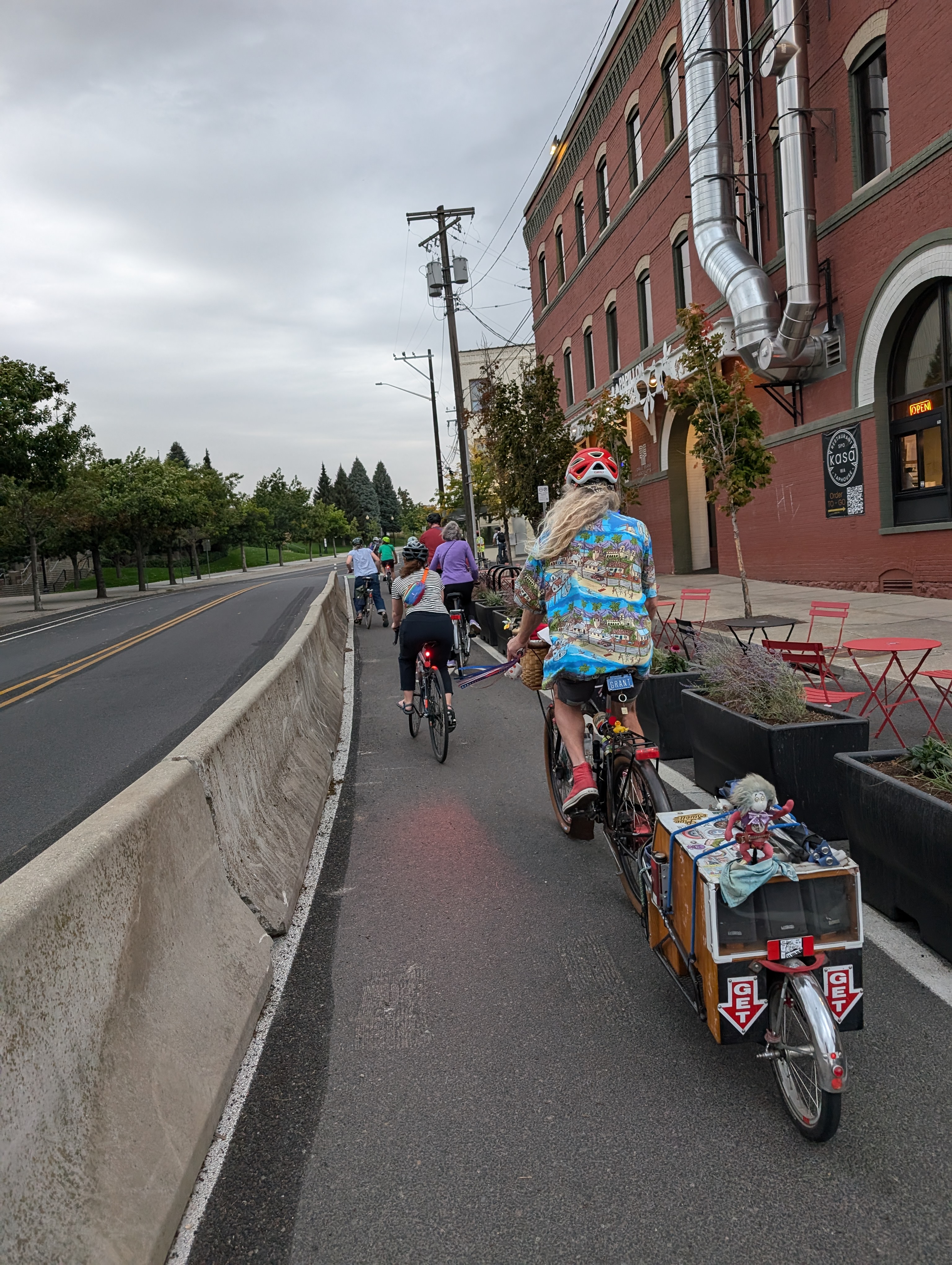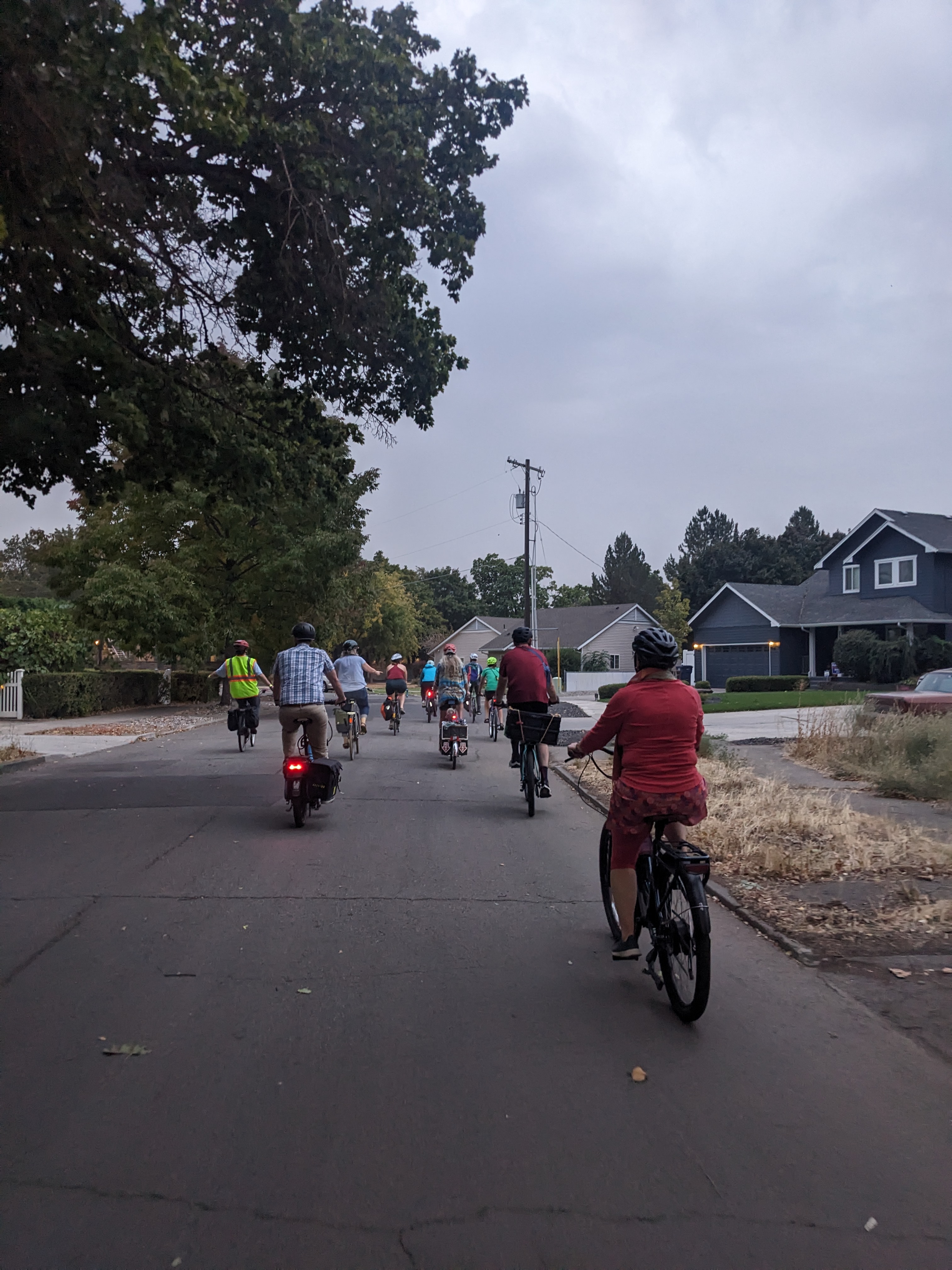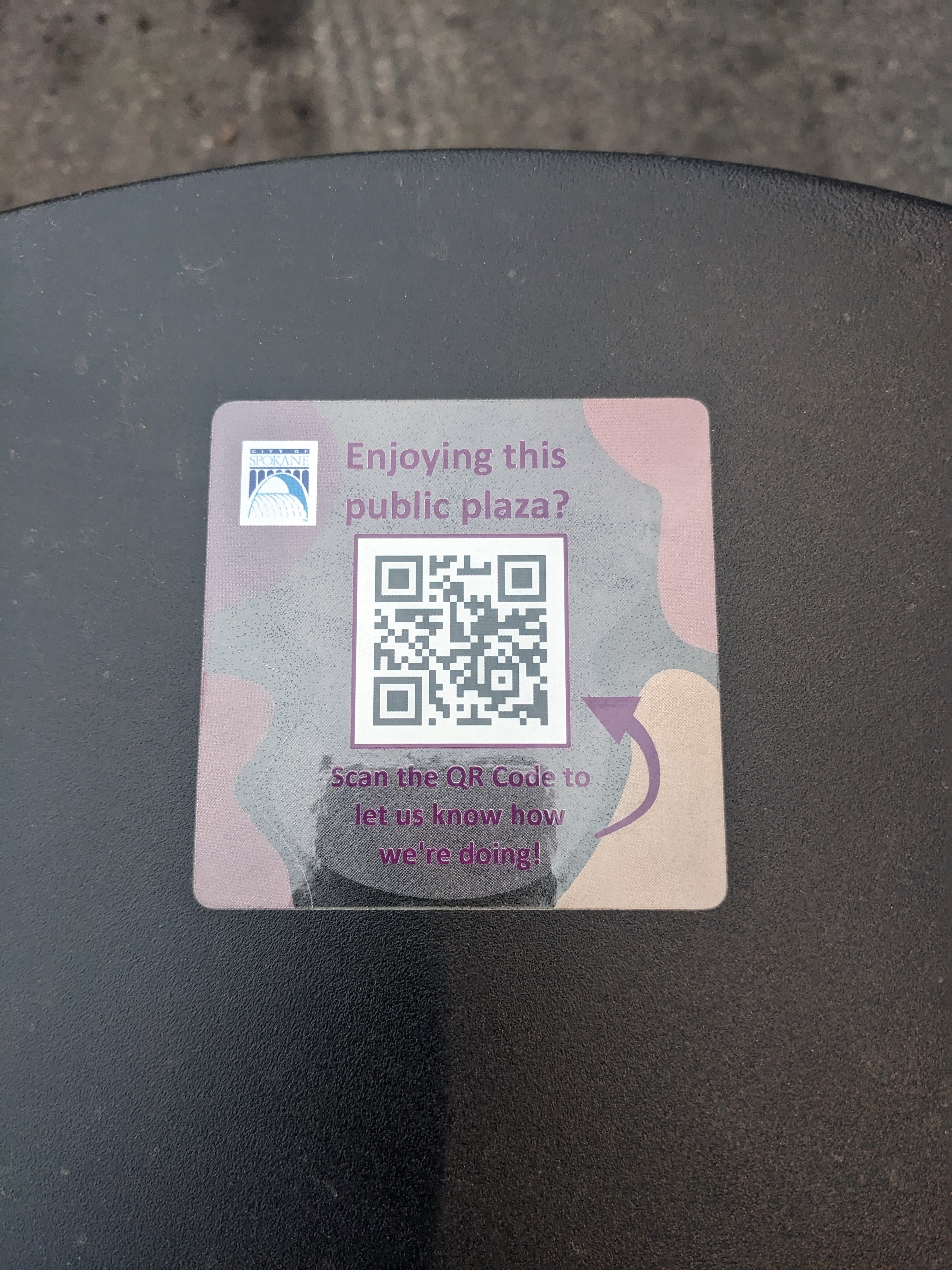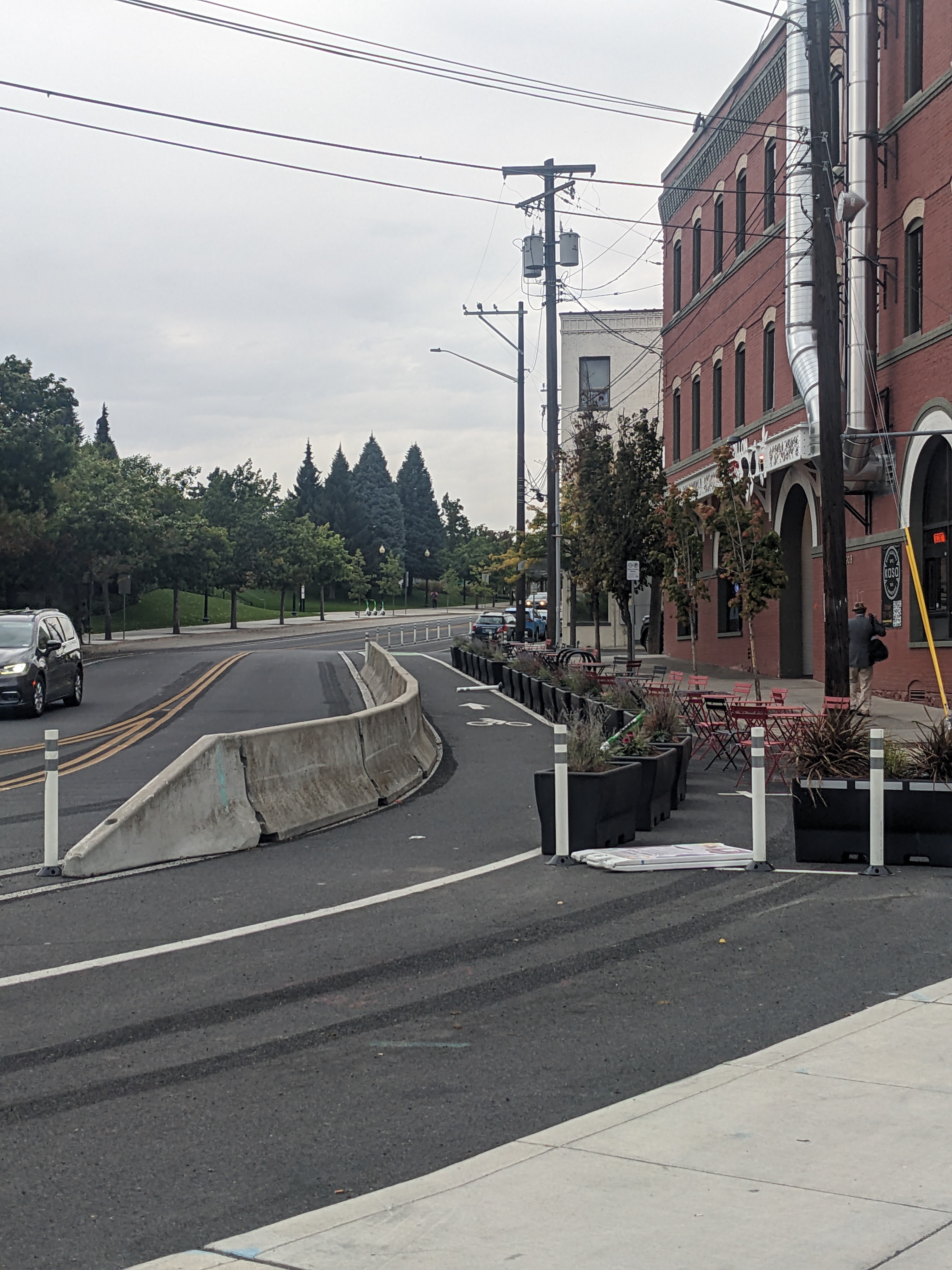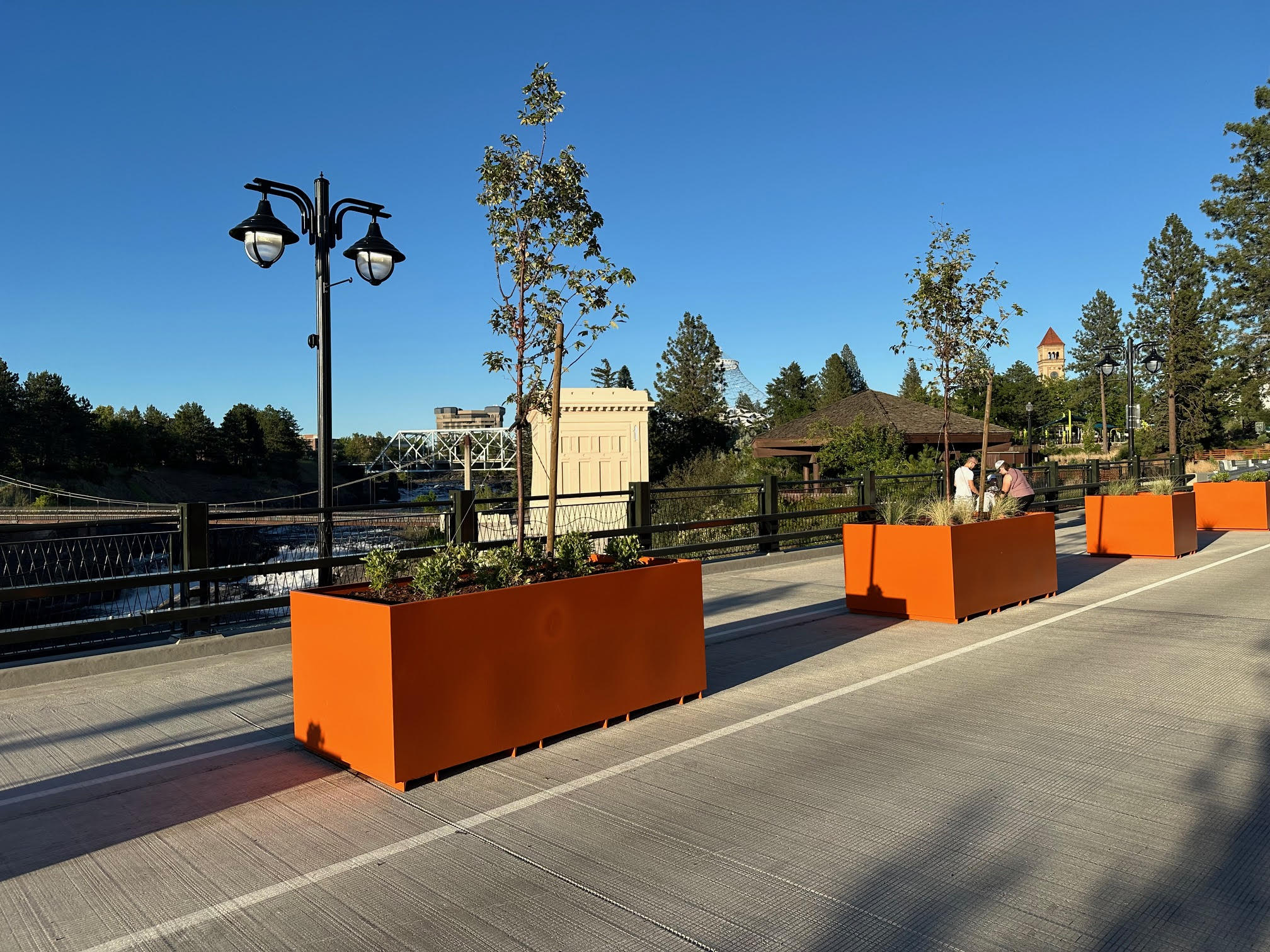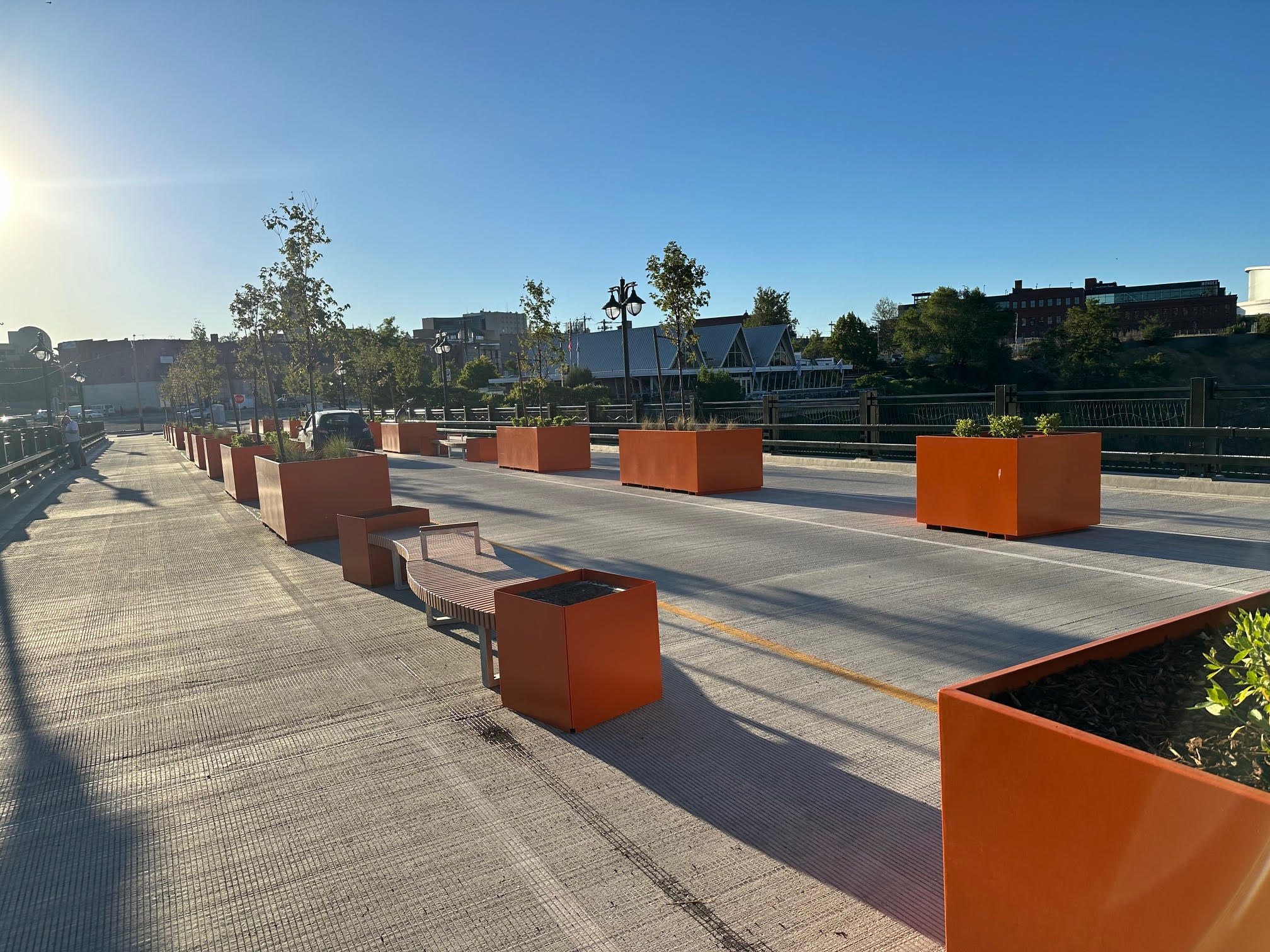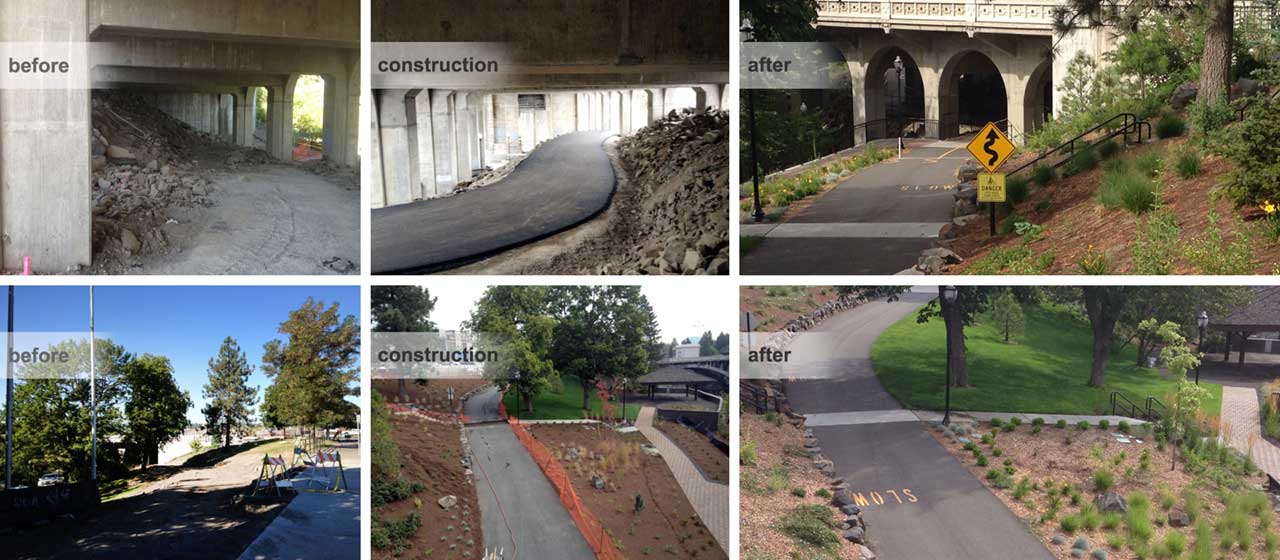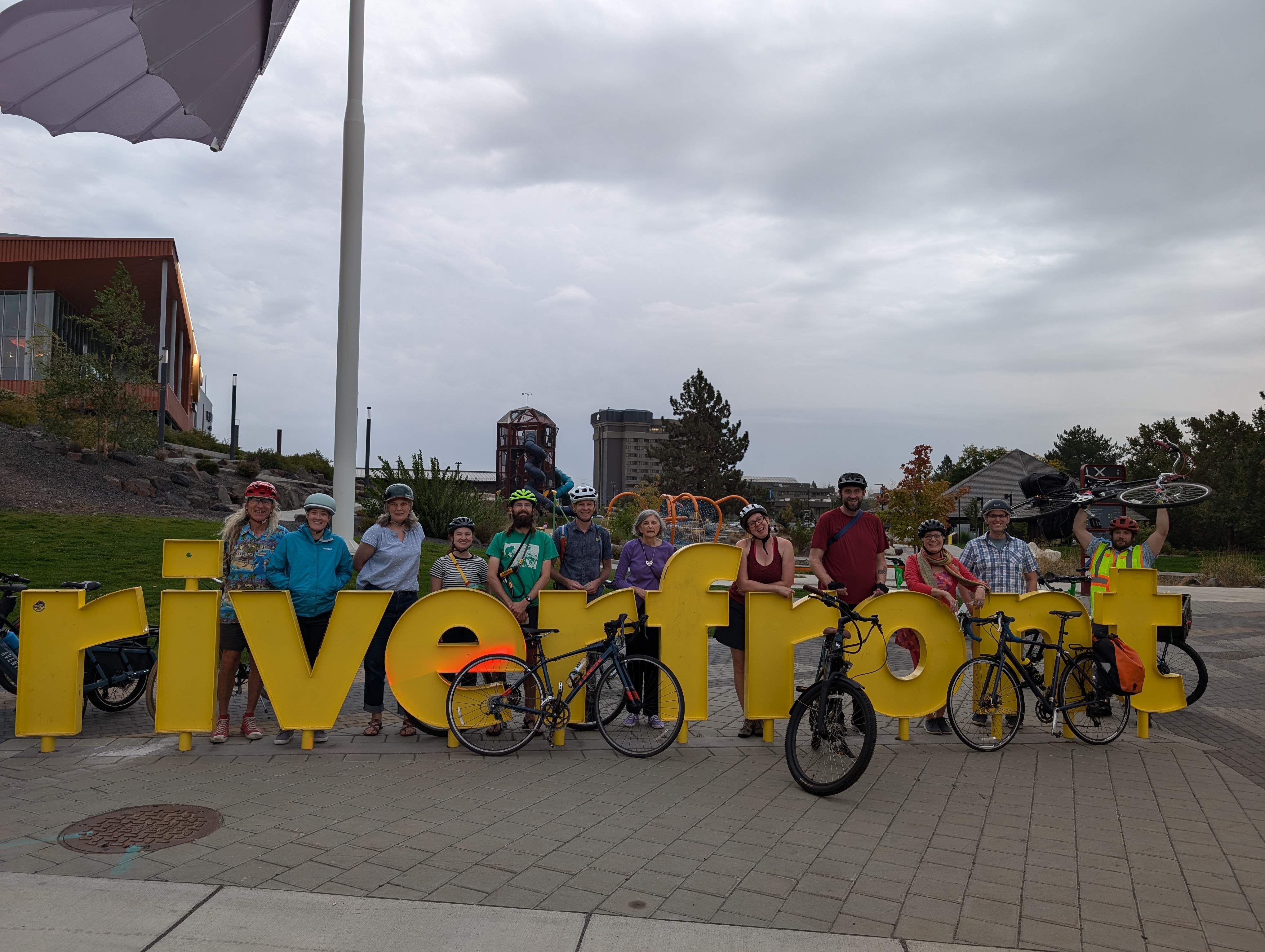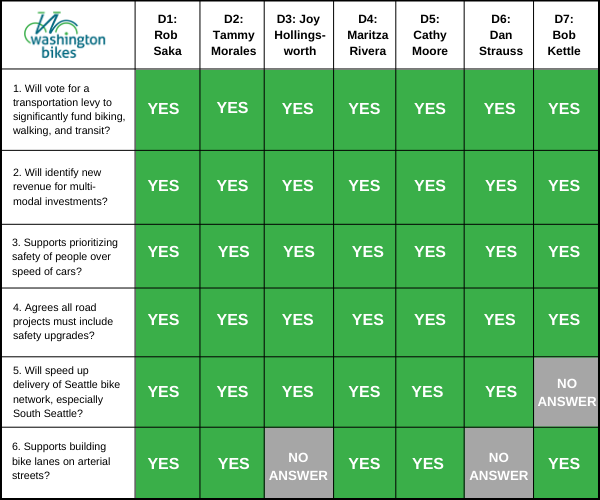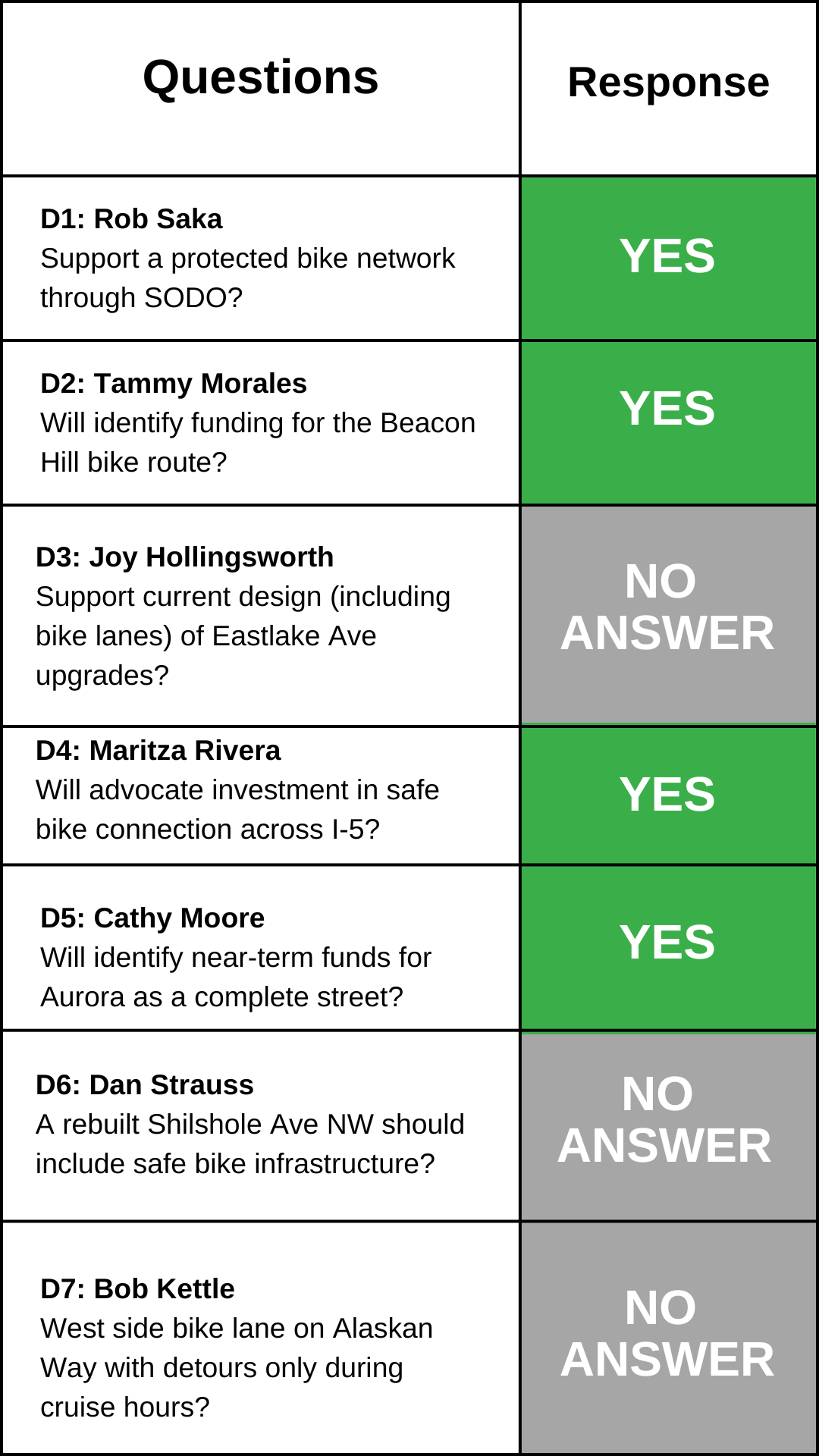- We helped bike-friendly candidates and policies win at ballot boxes across Washington state. Now we must work to ensure our elected representatives enact their promises.
- Sign up for our Lobby Days Feb. 11-12 and join us in speaking to legislators about the importance of funding and policies that advance bicycling.
With the November general election behind us, Washington Bikes is preparing its strategy to advance bicycling in the 2025 legislative session that begins in January. We need your help.
Join us in Olympia on Feb. 11 and 12 for the WA Bikes Lobby Days, an opportunity to speak with your legislators about the importance of funding the bike-friendly policies and programs that we all need and want to ensure everyone can safely bike, walk, and roll in their communities.
Click to sign up for WA Bikes Lobby Days
Here are some key takeaways from the election and how it will impact our priorities:
✅ Climate Commitment Act
Voters decisively rejected I-2117, which sought to repeal the state’s Climate Commitment Act, the funding source for our statewide youth biking education program, Safe Routes to Schools and many other programs and projects that will make our state more sustainable, equitable, and bikeable.
That said, the forecast for the transportation budget is far from rosy. Cost overruns on some mega-highway projects and lower-than-expected gas tax revenues mean that not all transportation funding commitments can be met. This will make for tough budget conversations in Olympia. Lobby Days are an opportunity for concerned community members and bike advocates to tell their legislators that we need to retain and grow funding for bike and pedestrian programs.
✅ WA Bikes Endorsed candidates head to Olympia; lots of new faces
Washington state has elected a new governor. Bob Ferguson, endorsed by WA Bikes, enters office in January and inherits the funding issues laid out above. He will release his first budget proposal early next year. We’re excited to work with Ferguson to maintain the momentum on making biking more safe, accessible and equitable, and addressing the ongoing traffic safety crisis.
Thirty-five of 36 WA Bikes candidates won their legislative races. We are excited to work with incumbent champions, newly elected legislators, and newly elected senators moving over from the House. Of note, Natasha Hill won her race for House Rep. Position 1 in Spokane. In Yakima, our endorsed candidate, Marie Beltran, lost to Curtis King, meaning King retains his position as minority leader on the Senate Transportation Committee.
❌Changes at the federal level
A Trump presidency means a new transportation secretary will oversee the U.S. Dept. of Transportation and the National Highway Traffic Safety Administration. Analyzing history, we can assume a lesser focus on active transportation and transit, and a regulatory rollback in favor of freight and automobile travel.
The millions of federal dollars coming to Washington state annually, and the transportation programs created through the Infrastructure Investment Jobs Act, are safe for the time being. These expenditures are part of a periodic federal transportation funding authorization process, and the next reauthorization won’t happen until 2026. But, different projects might start rising to the top: The focus on funding projects that advance climate, safety and equity benefits could well be replaced with a focus on transportation projects that advance the agenda of the automobile, fossil fuel, and corporate interests. Our job will be to sell bike and pedestrian projects as beneficial to economic development – which it is!
In the coming weeks and months, we will work with our national allies including the League of American Bicyclists, the Rails-to-Trails Conservancy, and People for Bikes, to better understand and identify collaborative opportunities to succeed, despite the potential impacts of a Trump administration on our funding priorities.
✅ Keep Seattle Moving Levy: $133.5 million for bike safety
With a 66% yes vote from Seattle residents, the Keep Seattle Moving transportation levy will make transportation investments over the next eight years, including a historic $133.5 million for bike safety projects.
These investments include long-overdue spending in South Seattle to complete the Beacon Avenue trail and a new protected bike lane on South Henderson Street. The package also includes a new protected bike lane through Ballard. Our sister organization, Cascade Bicycle Club, will be advocating that SDOT advance additional bike routes – especially in South Seattle – to provide a connected, citywide bike network.
✅ New bike friendly voices in local communities
WA Bikes endorsed candidate Ryan Mello will become the Pierce County executive in January. Mello is a long-time multi-modal transportation champion. Of note, via Mello’s leadership in 2022, Pierce County adopted Vision Zero and committed to a Vision Zero action plan. In his new role, Mello will be positioned to ensure the county takes action to make streets safer.
Another WA Bikes endorsed candidate, Alexis Mercedes Rinck, won her Seattle City Council race. Mercedes Rinck conducted her campaign on foot, by bike, and with mass transit. She is a vocal advocate for safe and efficient multi-modal transportation options, and she will be an ally to people who bike.
Now the hard work starts to hold elected officials accountable for their campaign promises, and to educate them about the policies and investments needed in their communities.
WA Bikes can’t accomplish this important work without your support. Donate today.
